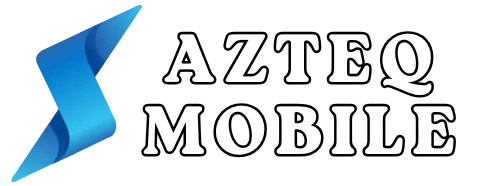In an age where digital marketing reigns supreme, honing in on the right marketing technology solutions is akin to finding the golden ticket to business success. Picture this: a bustling marketplace strewn with tech offerings, analytics, automation, content management, all shouting for your attention. It’s a wild ride, but don’t fret: we’ll navigate these digital waters together. From understanding what marketing technology really means to identifying essential features for your unique needs, this article equips you with valuable insights to transform your marketing strategy. Get ready to embrace the future,because it’s tech-tastic.
Table of Contents
ToggleUnderstanding Marketing Technology

Marketing technology refers to the tools and solutions that help businesses effectively engage with their audience and enhance efficiency. At its core, it’s about harnessing the power of data to create strong, personalized customer interactions. This can range from Customer Relationship Management (CRM) systems to sophisticated data analytics platforms. By leveraging these technologies, companies can segment audiences, track engagements, and even predict future buying behaviors, ensuring a tailored approach to marketing efforts.
Importance of Marketing Technology Solutions
In the ever-evolving landscape of modern marketing, the importance of marketing technology solutions cannot be overstated. They empower organizations to harness data-driven insights, enabling smarter decisions and more effective campaigns. With automation tools, for instance, businesses can streamline repetitive tasks, allowing their teams to devote more time to creative strategies and customer engagement. Also, effective marketing technology fosters collaboration among teams, ensuring that marketing efforts align seamlessly with sales and customer support. In essence, adopting these solutions enhances the overall marketing strategy, driving higher ROI.
Types of Marketing Technology Solutions
There is an array of marketing technology solutions available, each catering to specific needs within the marketing umbrella. Here’s a brief overview of the most prominent types:
1. Customer Relationship Management (CRM)
CRMs help manage interactions with current and potential customers. They provide a centralized platform for tracking communications and understanding customer needs.
2. Email Marketing Platforms
These tools streamline the process of designing, sending, and tracking email campaigns. They offer advanced targeting options to improve audience engagement.
3. Social Media Management Tools
These solutions simplify the process of scheduling posts, monitoring engagement, and analyzing performance across multiple social media platforms.
4. Marketing Automation Software
Automation software allows marketers to automate repetitive tasks such as lead nurturing, scoring, and various campaigns, maximizing efficiency.
5. Content Management Systems (CMS)
A CMS enables businesses to create, manage, and optimize their digital content effortlessly, ensuring a consistent and engaging online presence.
Key Features to Look for in Marketing Technologies
When evaluating marketing technology solutions, certain key features stand out as essential:
1. User-Friendly Interface
A user-friendly interface is crucial. If the solution isn’t easy to navigate, teams won’t use it effectively.
2. Integration Capabilities
Ensure the technology can seamlessly integrate with existing tools. Compatibility enhances overall functionality and reduces workflow disruptions.
3. Analytics and Reporting
Powerful analytics tools should be at the heart of any marketing technology. Look for solutions that offer real-time data and customizable reports.
4. Automation Features
Automation is key to enhancing efficiency. Features that allow for task automation can save time and reduce human error.
5. Customer Support
Reliable customer support can make a significant difference. Select vendors that provide responsive, knowledgeable assistance.
Implementing Marketing Technology Solutions
Implementing marketing technology solutions requires careful planning and strategizing. Here are some steps to consider:
1. Identify Objectives
Before selecting a solution, define the business goals. Understanding the specific outcomes expected from the technology will inform your choice.
2. Evaluate Options
Conduct thorough research. Compare functionality, pricing, and user reviews to find a solution that meets your needs.
3. Involve Stakeholders
Engage teams from different departments, including sales and customer service. Their input can provide diverse perspectives and additional requirements.
4. Pilot Testing
Consider implementing the solution on a trial basis. This allows your team to address any issues before full deployment.
5. Training and Support
Provide comprehensive training. Well-trained staff will embrace the technology, maximizing its potential and ensuring successful adoption.
Future Trends in Marketing Technology
As technology advances, marketing is set to evolve in exciting ways. Here are some anticipated trends shaping the future of marketing technology:
1. AI and Machine Learning
Expect AI to play a significant role in data analysis, predictive analytics, and customer interaction. Machine learning can help marketers uncover deeper insights and optimize campaigns.
2. Personalization at Scale
Marketers will increasingly lean on technology for hyper-personalized experiences, delivering tailored content and offers to individual customers.
3. Voice Search Optimization
With the rise of smart speakers, optimizing for voice search will become essential. Technology solutions will evolve to accommodate this trend, focusing on conversational queries.
4. Privacy-Centric Solutions
As consumer privacy concerns grow, marketing solutions will need to prioritize data privacy and compliance, ensuring customer trust remains intact.



